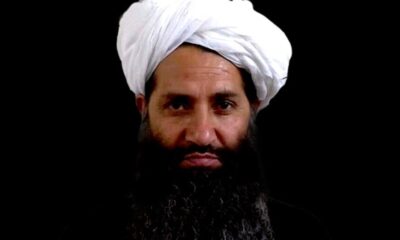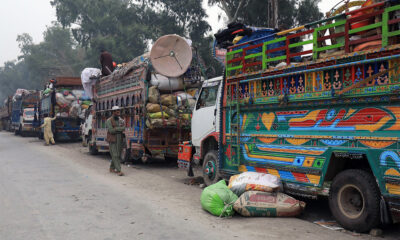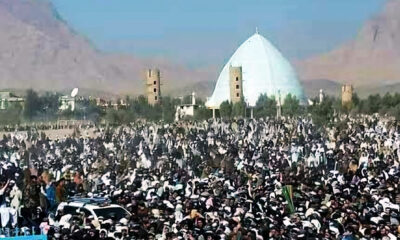Latest News
UN report states justice system is failing Afghan women and girls
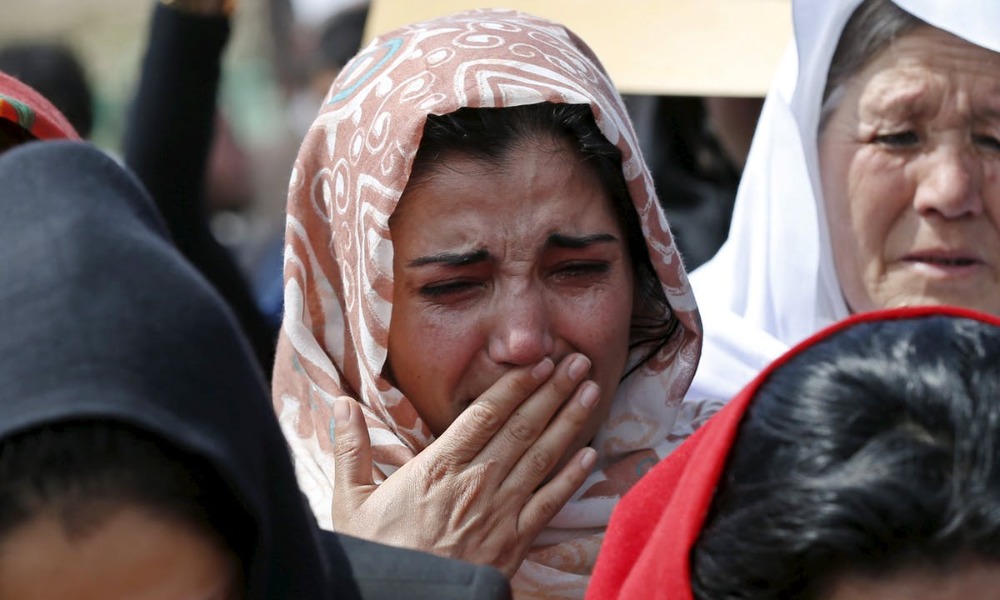
Afghan women and girls are being failed by the country’s justice system as their access to justice for crimes of violence is shaky, a new report released Monday by the UN Assistance Mission in Afghanistan (UNAMA) and the UN Human Rights Office stated.
The report, titled, “In Search of Justice for Crimes of Violence Against Women and Girls,” examines the response of the justice system and assistance provided to survivors in reported cases of violence against women and girls in the period between September 2018 and February 2020.
The report acknowled the response by the justice system to violence against women and girls continues to improve, but stated that progress has been limited.
“UNAMA found that only half of reported crimes reached a primary court, with perpetrators convicted in around 40 percent of all documented cases, a statement issued by the UN read.
“The stark reality is that too many women and girls still fail to see justice for the violence they experience, and impunity remains far too common,” said Deborah Lyons, the Secretary-General’s Special Representative for Afghanistan.
According to the report, one in every five women in cases documented by UNAMA decided not to pursue their case through justice channels by either not filing a complaint or later withdrawing it.
“The failure by State authorities to pursue crimes in such cases is particularly disturbing in cases of child marriage, as victims are unlikely to be able to independently seek recourse from the system,” UNAMA stated.
The mission stated that “UNAMA monitoring underscores how many women resort to self-immolation or suicide due to violence, suggesting they feel that the justice system does not offer a realistic path to escape.”
According to the report, the findings have raised multiple concerns about the justice system’s treatment of women and girls, such as low rates of conviction for so-called “honour killings” – just 23 percent as compared to a conviction rate of 51 percent for murders unrelated to “honour”.
Other issues raised in the report include the problematic handling of rape cases and the ongoing detention of women for “running away”.
“Far too many times, the justice system re-victimizes survivors instead of working on their behalf. This trend must stop. Serious efforts must continue to enable women and girls to access justice and to ensure that they are treated with dignity by the justice system,” said Fiona Frazer, UNAMA’s Human Rights Chief and Representative of the UN High Commissioner for Human Rights in Afghanistan.
UNAMA has meanwhile called for the Elimination of Violence Against Women Law (EVAW Law) to be amended to expand the powers of the authorities to investigate and prosecute all crimes in the Law and to strengthen institutional responses to crimes of violence against women and girls.
In addition, the UN in Afghanistan has called on all Afghans, including national, provincial and local authorities, community and religious leaders, and individual Afghans, to increase efforts to prevent and reform violence against women and girls.
“This is particularly important in the context of the outbreak of COVID-19, where ongoing monitoring by UNAMA suggests that violence against women and girls has increased, as have difficulties for victims to report crimes and access safety and justice,” the statement read.
UNAMA Human Rights has been documenting incidents of violence against women and girls since 2010 and monitoring government efforts to address such incidents, particularly through the implementation of the EVAW Law, 2009.
Latest News
Islamic Emirate faces a wave of negative propaganda: Supreme leader
In his speech, Akhundzada emphasized on avoiding division and disunity, stating that the survival of the system lies in unity and solidarity.
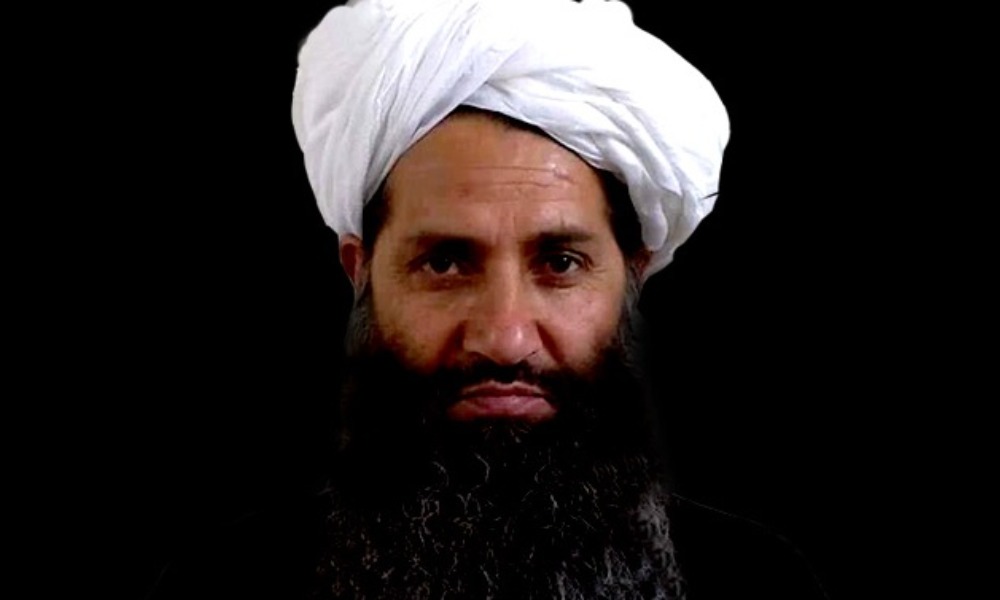
Mawlawi Hibatullah Akhundzada, supreme leader of the Islamic Emirate of Afghanistan (IEA), led Eid-ul-Fitr prayer in Kandahar province on Sunday, attended by thousands of people.
In his speech, Akhundzada emphasized on avoiding division and disunity, stating that the survival of the system lies in unity and solidarity.
He added that the Islamic Emirate is facing a wave of negative propaganda, and its enemies are using these tactics to incite war and conflict in the country once again.
He warned that division would lead to the failure of Muslims and the collapse of systems.
The leader of the Islamic Emirate further mentioned that they sacrificed their lives for 20 years to achieve victory in jihad, and protecting this system requires even more sacrifices.
He called on the people, the forces of the Islamic Emirate, and officials to obey the leadership’s orders, emphasizing that the absence of leadership in the past led to civil wars, which must not be repeated.
Latest News
Pakistan finalizes plans to detain and deport Afghans as deadline nears
Pakistan has granted Afghan migrants, both undocumented and those holding ACC cards, a deadline of March 31 to voluntarily leave the country.
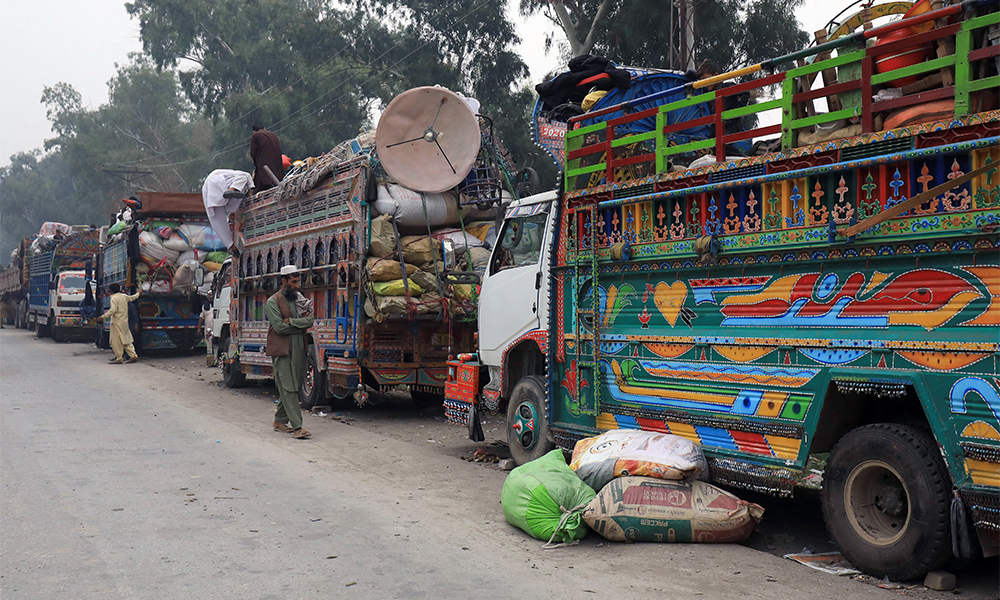
Officials in Pakistan have completed arrangements to detain and expel Afghan citizens following the March 31 deadline for their voluntary return to Afghanistan. This move is part of the country’s plan to address the growing concerns regarding the status of Afghan migrants in Pakistan.
A high-level meeting on Friday, chaired by Interior Minister Mohsin Naqvi, reviewed the measures to repatriate Afghan Citizen Card (ACC) holders. This meeting focused on ensuring the effective execution of the government’s deadline and the logistics surrounding the return process.
Despite requests from the Afghan government and human rights organizations, Pakistani authorities have firmly rejected extending the deadline for the return of ACC holders. The Pakistani government had initially set the deadline for the end of March, and the expulsion process will move forward as planned.
Mohsin Naqvi also revealed that Talal Chaudhry, the State Minister for Interior, would travel to the provinces to assess and address any challenges and potential issues in the process of Afghan migrants’ return.
Meanwhile, Pakistani security forces have detained at least 932 Afghan migrants in Rawalpindi, as the deadline for the expulsion of Afghan migrants with ACC cards approaches.
Human rights organizations have strongly condemned Pakistan’s recent decision to expel Afghan refugees, labeling it a violation of international law and a potential humanitarian crisis. They argue that many of these refugees, including human rights defenders, political activists, and victims of gender-based violence, fled Afghanistan to escape persecution and are now at risk of facing harm if deported.
The Human Rights Commission of Pakistan (HRCP) has expressed deep concern over the government’s ultimatum for undocumented immigrants to leave by March 31, warning that this could lead to a humanitarian disaster. They highlight that such forced repatriation violates international customary law and could adversely affect vulnerable groups, including women, children, the elderly, and individuals with disabilities.
Amnesty International has called on Pakistan to halt the detentions, deportations, and harassment of Afghan refugees, emphasizing that these actions violate the principle of non-refoulement, which prohibits returning individuals to places where they face risks of persecution. They stress that deporting Afghan refugees, especially women and girls, could deny them access to safety, education, and livelihoods.
Pakistan has granted Afghan migrants, both undocumented and those holding ACC cards, a deadline of March 31 to voluntarily leave the country.
However, Pakistani officials confirmed that Afghan migrants holding “PoR” cards are not at risk of being expelled until June 30.
Meanwhile, the International Organization for Migration (IOM) reported a sharp decline in Afghan returns and deportations during the first half of March. Between March 1 and 15, returns dropped by 67 per cent, while deportations fell by 50 per cent compared to the previous reporting period (February 16-28).
Latest News
Eid prayer led by IEA leader in Kandahar: Mujahid
Abdul Salam Hanafi, the Deputy Prime Minister for Administrative Affairs, called on opposition groups to return to Afghanistan and participate in the country’s reconstruction.
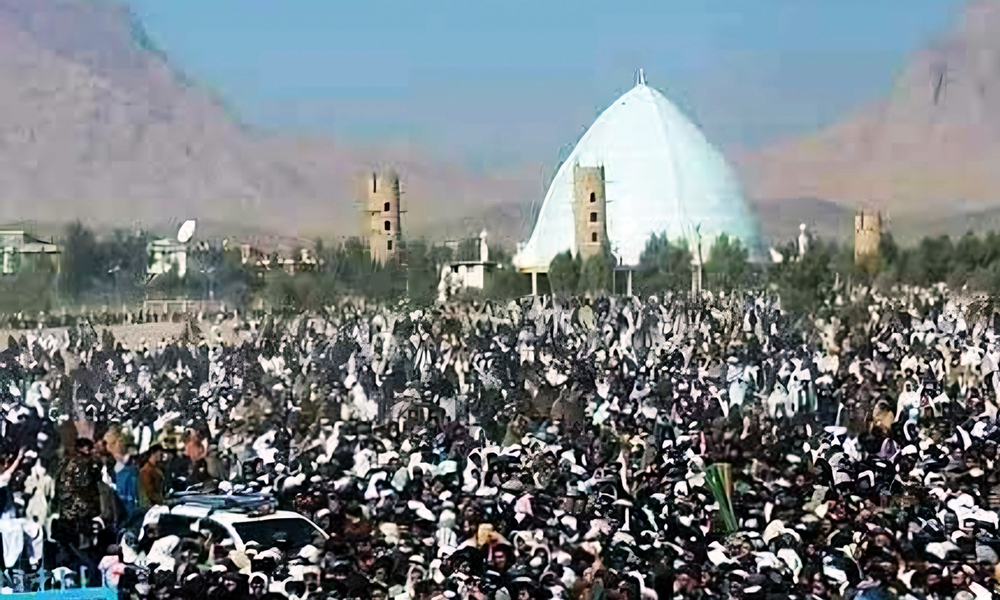
Zabihullah Mujahid, the spokesperson for the Islamic Emirate, announced on Sunday that the Eid al-Fitr prayer was held at the Eidgah Mosque in Kandahar, where Hibatullah Akhundzada, the Supreme Leader of the IEA, led the prayers.
Thousands of people attended the event, marking a significant religious occasion.
Other IEA senior officials gathered for the Eid prayer at the ARG (Presidential Palace) in Kabul.
Mullah Abdul Ghani Baradar, the Deputy Prime Minister for Economic Affairs, took the opportunity to address the public, stating that the Islamic Emirate is ready to engage with the world based on mutual respect. He also emphasized the importance of unity and solidarity among the Afghan people.
Baradar stressed that rebuilding the country requires internal unity and that no foreign entity can achieve this task for Afghanistan. On security, he highlighted the achievements of the past three years, asserting that under their administration, Afghanistan has become fully secure.
He reaffirmed that the IEA is committed to fostering international relations through an “economy-driven policy.”
Abdul Salam Hanafi, the Deputy Prime Minister for Administrative Affairs, called on opposition groups to return to Afghanistan and participate in the country’s reconstruction.
Hanafi reiterated the IEA’s desire for economy-driven relations with all regional and global powers based on mutual respect.
Mohammad Yousuf Wafa, the Governor of Balkh, also affirmed that the current system will not be undermined. He stated, “This system was established through great sacrifices, and it is our collective duty to defend it.”
The Eid prayers and the speeches of the IEA leadership underscored a message of unity, security, and a desire for positive international engagement.
-

 Latest News5 days ago
Latest News5 days agoAfghanistan has the right to access Amu River’s water: Uzbek minister
-

 Climate Change5 days ago
Climate Change5 days agoUN and ICRC warn of serious water shortage in Afghanistan
-

 Latest News4 days ago
Latest News4 days agoAmnesty international urges Pakistan to halt Afghan deportations
-

 International Sports5 days ago
International Sports5 days agoIPL 2025: Punjab Kings secure thrilling 11-run win over Gujurat Titans
-
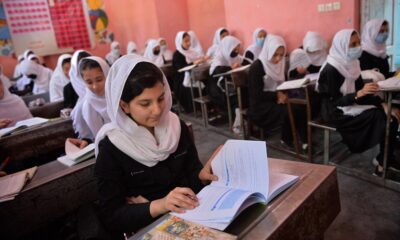
 Latest News5 days ago
Latest News5 days agoUN ‘deeply disappointed’ over ongoing ban on girls’ secondary education
-

 Latest News4 days ago
Latest News4 days agoAfghanistan-Iran-Europe railway corridor activated
-

 Business4 days ago
Business4 days agoAfghanistan ships first consignment to Europe via Khaf-Herat railway
-

 Business3 days ago
Business3 days ago36 mining contracts inked over the past year: Mines ministry




